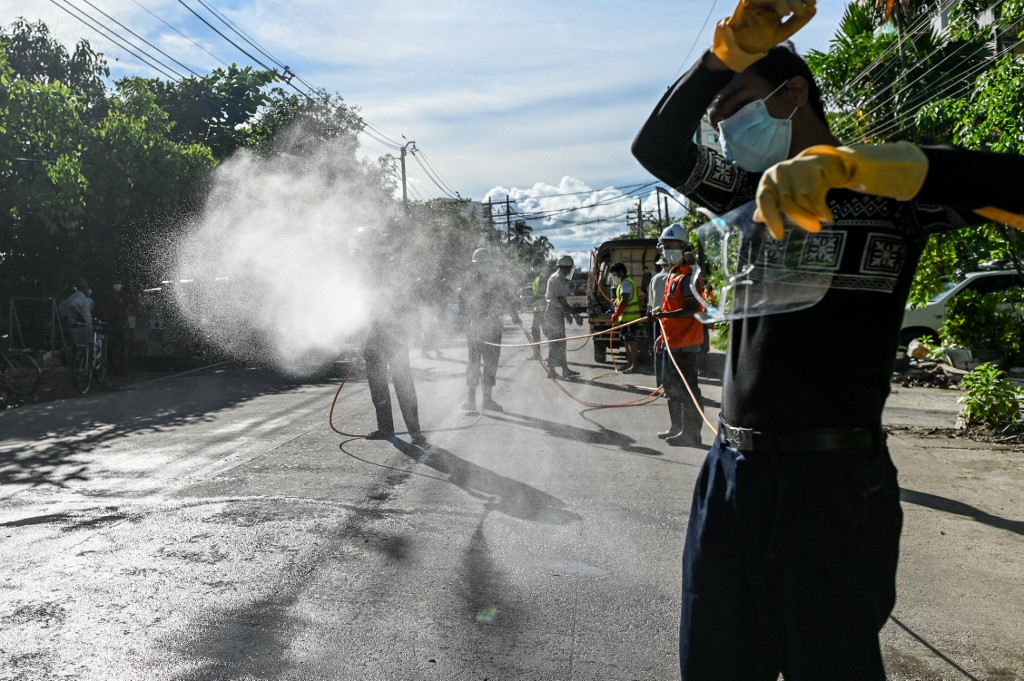
Opposition parties in Myanmar are calling for November's election to be postponed as the country scrambles to control a coronavirus surge.
New infections are doubling every week—albeit from a relatively low base—and hospitals in the biggest city, Yangon, are overwhelmed in a nation with one of the world's poorest healthcare systems.
The sharp jump comes as Myanmar prepares to hold national elections on November 8, with leader Aung San Suu Kyi's National League for Democracy (NLD) widely expected to be returned to power.
But calls are growing for the polls to be delayed.
The head of the military-aligned opposition Union Solidarity and Development Party (USDP), Than Htay, told AFP he was "very concerned" about holding the vote during the pandemic.
"The government should not sacrifice the people... If it's not suitable to hold the election, postpone it!"
In a Facebook post, the People's Pioneer Party also urged a delay to allow the vote to be held "fairly and without chaos".
Local media say at least three other parties are echoing the call.
So far, commercial hub Yangon, capital Naypyidaw and conflict-stricken Rakhine state are all under lockdown, while domestic flights and long-distance bus routes have ceased.
Neighbours China and Thailand are boosting security on shared borders to try to stymie any spread of the outbreak.
The NLD could not be reached for comment.
Borders tightened
The Southeast Asian nation of some 55 million had weathered the epidemic relatively well until late August, with case numbers under 400 and just six deaths.
But in under four weeks infections have steadily spread, jumping to 3,299 cases and 32 deaths by Tuesday.
The virus hotspots are Yangon, a teeming metropolis of over seven million, and northwestern Rakhine state, where fighting between the military and armed rebels has forced some 150,000 from their homes.
Officials are scrambling to provide extra health facilities in Yangon, creating two tented hospitals with hundreds of extra beds.
Several members of Suu Kyi's office have tested positive, but the government confirmed Tuesday the leader was in "good health".
After detecting several new cases in the Chinese border city of Ruili—separated from Myanmar by a shallow river—China announced a swift lockdown Tuesday.
Officials there said they would crack down on illegal immigrants and promised to test all 210,000 residents.
Thailand has also increased its military presence on the Thai-Myanmar border.
"We stepped up patrols early this month," local commander Colonel Suwat Thongbai told AFP.
Myanmar's 60-day election campaign period only started last week.
A postponement of more than two months would theoretically cause a constitutional crisis and even the invocation of a state of emergency.
But analyst Richard Horsey predicts the government and military would reach a consensus to prevent any political fallout.

